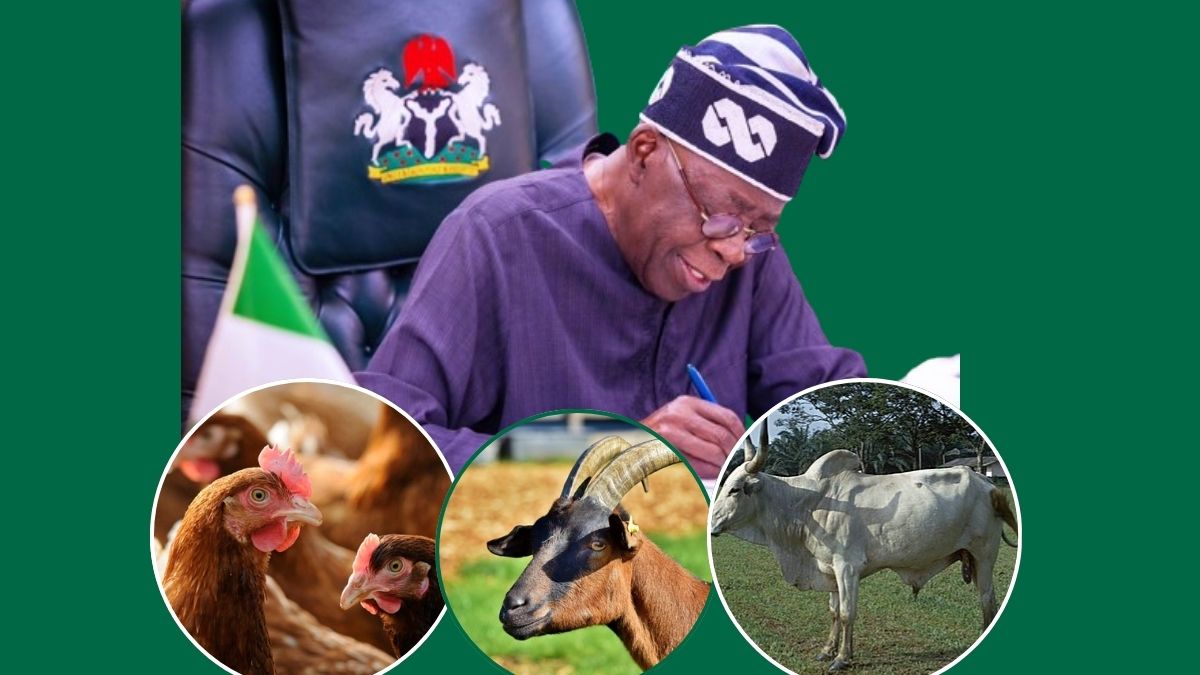News in brief:
– President Tinubu calls for livestock reforms to reduce Nigeria’s $1.5 billion dairy imports and create more domestic jobs.
– Governors and stakeholders are expected to back reforms that will enhance food security and boost local production.
President Bola Tinubu has urged investors in the livestock sector to collaborate on reducing Nigeria’s annual $1.5 billion dairy import bill. Speaking at a Stakeholders Consultative Workshop at the Presidential Villa, Abuja, Tinubu outlined his administration’s commitment to transforming the livestock industry/ with a focus on boosting local production, creating jobs, and improving food security.
The President highlighted the newly formed Livestock Ministry as a key component of the reform efforts to address Nigeria’s nutritional needs. He criticised the country’s reliance on dairy imports and the inability to provide milk for schoolchildren.
“A country of over 200 million people cannot serve our children one pint of milk in the classroom per day,” he lamented.
Livestock sector reform
Tinubu expressed his administration’s determination to shift Nigeria’s livestock sector from a subsistence model to a thriving commercial industry. He emphasised the potential of the sector to create jobs and contribute to national gross domestic profit (GDP).
He also inaugurated the Presidential Livestock Reforms Implementation Committee, tasked with developing actionable strategies for the transformation of the livestock sector. “There’s no excuse for neglecting this vital sector any longer,” Tinubu stated.
Kwara State Governor, AbdulRahman AbdulRazaq, representing the Nigeria Governors Forum, expressed support for the President’s livestock reforms. He noted that the initiatives would enhance food security and help reduce conflicts between herders and farmers.
Nigeria’s annual dairy imports bill could be slashed through improved local production. The livestock sector is also critical for improving food security and reducing malnutrition, especially in schools. Tinubu reiterated that his administration would create a business environment where the livestock industry could thrive.



